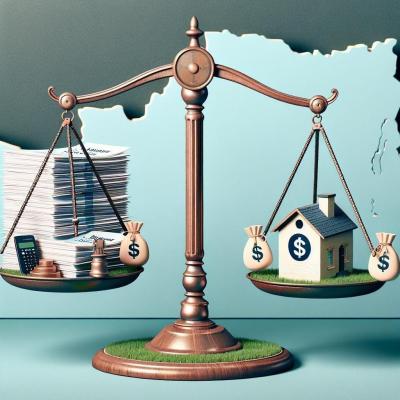Despite the positive sentiment, concerns remain that political obstacles may hinder progress, and clients must understand that other factors could affect premium rates even as the levy is removed.
Last week, NSW Premier Chris Minns announced plans to replace the ESL with a "fairer" system.
The ESL currently adds around 18% to home insurance premiums and up to 30% to commercial premiums in NSW, exacerbating the state's chronic underinsurance problem. NSW is the last mainland state to fund emergency services through an insurance levy.
A Positive Development for Insurance Affordability
Paul McLean, Chief Distribution Officer at Aviso Broking, describes this reform as a "huge step in the right direction" considering the increasing pressures of insurance affordability in the state. He believes these changes will allow significant savings to be redirected towards addressing underinsurance issues and providing support to those who struggle to afford insurance altogether.
However, some brokers recall a previous promise to abolish the levy, which was later reversed in 2017.
"There is concern that the reform might get tangled up in bureaucracy and either be delayed or not implemented at all," says Belinda Basha, Resillium Regional Manager for NSW/ACT.
While confident that the reform will proceed, David Mansley, Managing Director at Mooneys Insurance Brokers, fears that insurers may not pass on the full savings to policyholders. He also questions the effectiveness of a monitoring system to accurately track the transition.
"I anticipate an increase in base premiums," Mansley explains. "Perhaps I am a bit cynical."
Realistic Expectations for Premium Reductions
Shaun Standfield, Managing Director of Insurance Advisernet, suggests that the real issue is education. He believes it is unrealistic to expect the entire savings from removing the ESL to be immediately reflected in new premium rates.
"I believe the Insurance Council will need to launch an education campaign to manage expectations that premiums will decrease by the exact amount of the current ESL rates," Standfield explains.
Standfield also highlights that premium reductions might be offset by increases in property catastrophe reinsurance rates, claims inflation, and fluctuations in the value of the Australian dollar.
"As brokers, it is our responsibility to explain how the reduction will work in practice. Premiums will not decrease by the exact amount of the ESL reduction due to various economic factors that influence insurance pricing," he adds.
Insurers' Commitment to Passing on Savings
Aviso Broking's Paul McLean agrees that insurers are likely to pass on savings to policyholders where possible.
"Reforming the ESL would be a major victory for insurance affordability in NSW. I do not foresee insurers obstructing the process by refusing to pass on the full savings," McLean affirms.
Belinda Basha also sees the reform as an opportunity to promote competition among insurers.
"ESL reform opens the door for greater competition in the Australian insurance market, allowing insurance companies to offer coverage to previously underinsured or uninsured risks," Ms. Basha says.
"This increased competition will likely incentivize insurers to pass on the full savings to policyholders."
No official timeline has been provided for the reform. The Treasurer will engage in consultations with industry stakeholders and is expected to release a discussion paper in the coming months.










